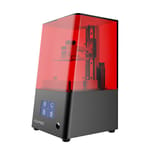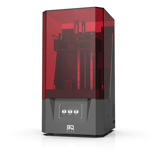With the introduction of the Photon M3 Plus, Anycubic’s Photon series is swelling. In fact, you could say it’s beginning to look like the resin equivalent of the bloated Ender 3 line, with a total of ten machines in the series. Anycubic must pay good money to research product names because by golly it’s stretching this one.
But the Photon M3 Plus does look like an interesting resin 3D printer, standing out even from the likes of the recent Photon M3 Max with its remote printing ability, but sharing the desirable automatic resin filling feature. It’s about time we saw some new features instead of just imperceptibly higher resolutions. We’re pretty sure those are good enough now.
Priced at ~$700, the printer has some stiff competition, with recent systems capable of beating it out in price, its already high 34-micron resolution, and even build volume all at once (we’re looking at you Saturn 2), making the printer’s unique features all the more important for it to be worthwhile.
So, how does it hold up? We take a closer look at the Photon M3 Plus features that Anycubic is showing off and share a few of the product’s reviews that you can check out now below.
Features
Automatic Resin Filling
Automatic resin refilling, which Anycubic calls “Smart Resin Filling”, seems to be the feature of this printer that garners most of its interest. As best as we can tell, Anycubic’s resin feeding system is designed to just cap onto the company’s resin bottles and create positive pressure to pump resin into the vat. The system uses two metal prongs to detect the resin level and fill when required. Reviewers have said it tends to overfill somewhat, though.
Third-party material compatibility will be in question here. First, in terms of the cap simply fitting other manufacturers’ resin bottles. Second, whether the sensors will detect third-party resin. Anycubic suggests in the Photon M3 Plus’ manual that users confirm the sensor’s red light turns off when touching third-party resin before printing with the feature enabled. If the light stays on, the resin is incompatible and the vat will overflow.
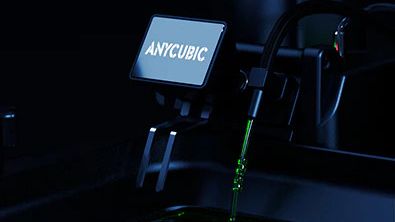
Wireless Connectivity
Anycubic has its own cloud 3D printing app called Anycubic Cloud. With it, and the Photon M3 Plus connected to your network wirelessly or by Ethernet, Anycubic says users can control and monitor their printer remotely. There is also an optional camera for visual print monitoring via Anycubic Cloud, but the hardware costs an extra ~$30 to purchase. Though, it seems to be a very simple install. Plug and play, baby!
Though the app is up and running, it seems like it hasn’t reached the state Anycubic suggested it would back in 2020. So far there’s no option to download models, no desktop version exists, and cloud slicing isn’t a feature. Instead, it appears users must use Photon Workshop to slice models, upload them to Anycubic Cloud, then start the print from the app. Why bother with the app at all? Just let Photon Workshop do the job, or at least create a web app. Cloud.anycubic.com exists, but has an expired certificate and is just a 403 error right now.
34-Micron Resolution
Seems not so long ago that getting 4K resolution on a small resin printer was a feat, and even less time since printers went completely overboard with 8K resolutions on small screens. The Plus is fitted with a 6K resolution, which seems ideal to achieve a noticeably high accuracy before running into too-steep diminishing returns.
That resolution comes from the 9.25-inch 5,760 x 3,600 pixel monochrome LCD screen, resulting in an impressive 34-micron accuracy – the best in the M3 lineup. Anycubic is also touting a 350:1 contrast ratio for the screen, which it says is higher than that of competitors. It is, however, lower than the smaller Photon M3’s 400:1 ratio.
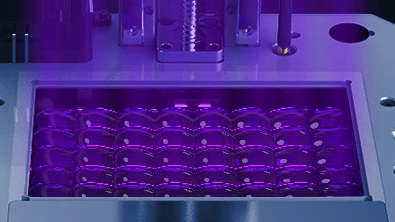
High-Speed Printing
Anycubic is claiming the Photon M3 Plus can print at speeds of up to 100 mm per hour, which would be impressive indeed. Unfortunately, some reviewers have taken issue with the claim. Thomas Sanladerer says in his review that while the printer’s layer cure time is an admirable 1.5 seconds, the peel time makes Anycubic’s 100 mm per hour claim unattainable.
Still, 1.5 seconds is a solid layer cure time, and Anycubic says that it achieves this speed, at least in part, through its “LighTurbo” light source. That’s a fancy branded name for the company’s LED array comprised of 40 LED beads. Aside from speed, there’s an argument to be made that an array like this is excellent for light uniformity.
Further Features
- Large Build Volume: the Photon M3 Plus’ 197 x 122 x 245 mm build volume is set firmly between the gargantuan Photon M3 Max and more standard-sized Photon M3.
- Laser Engraved Build Plate: etched with a checkerboard pattern, the M3 Plus’ build place should hold fast as it peels your parts.

Price
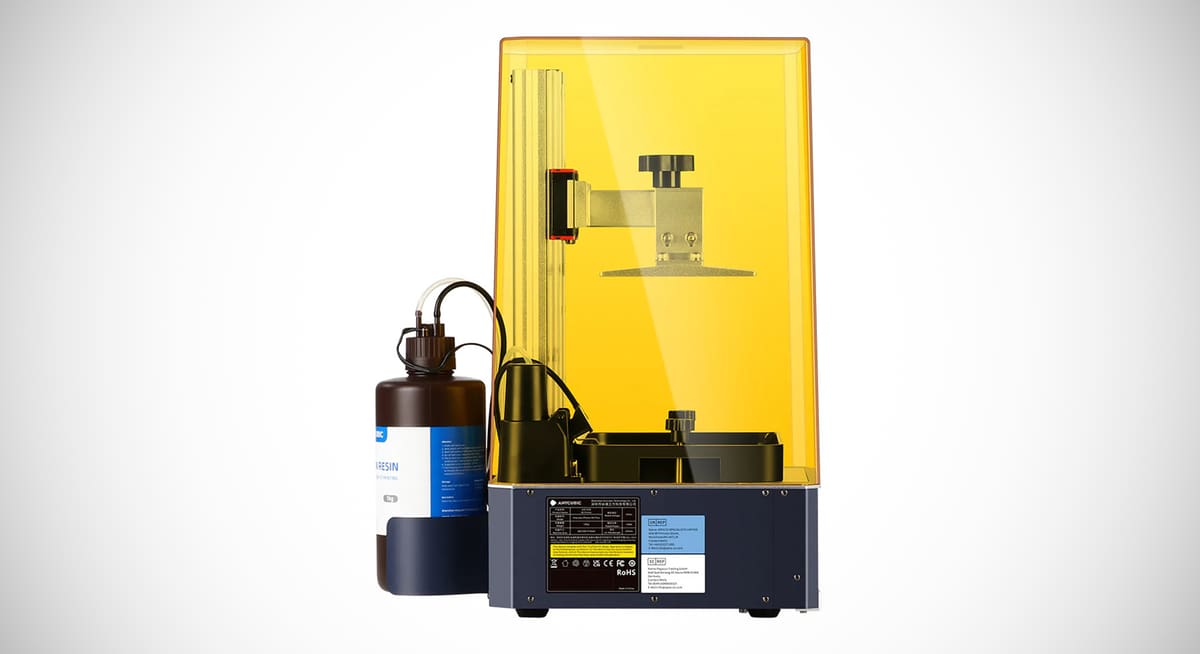
Anycubic is asking ~$700 for the Photon M3 Plus. Its unique features aside, That’s not a bad price for 34-micron accuracy and 197 x 122 x 245 mm build volume. Especially with a solid 1.5-second layer cure time.
Though, notably, its specs are lower than the upcoming $600 Elegoo Saturn 2, which achieves an even higher accuracy of 28.5 microns with a slightly larger 219 x 123 x 250 mm build volume. Though that increased accuracy probably won’t result in much noticeable detail and the Photon M3 Plus is already available.

Reviews
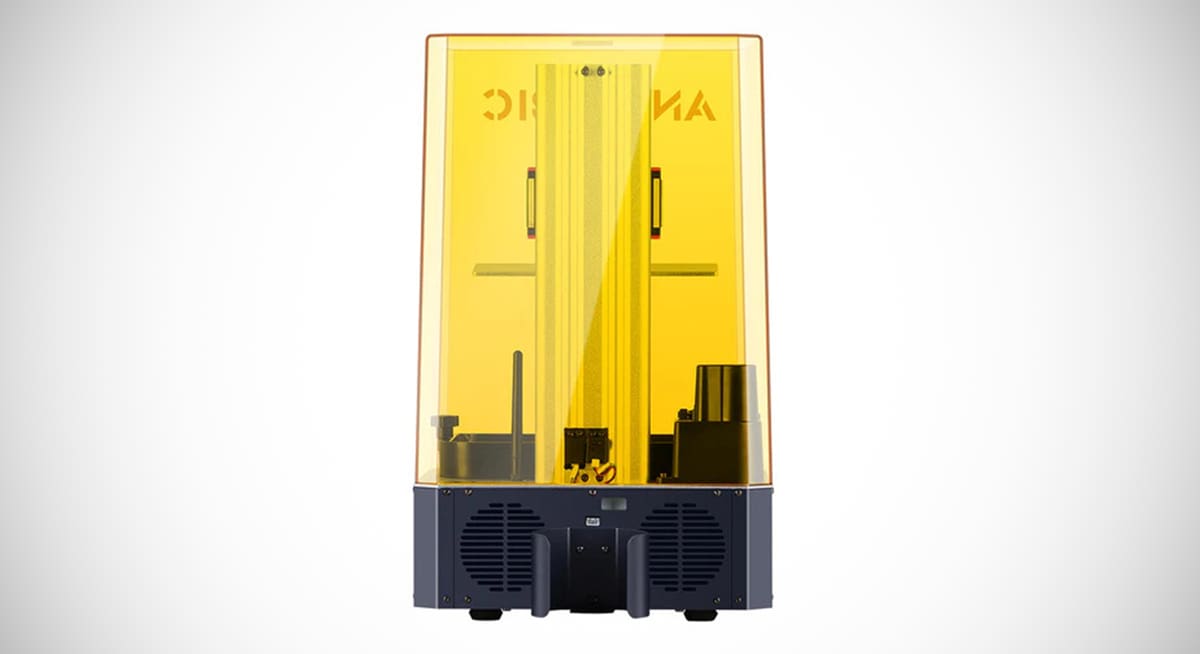
Having been around for a little bit, plenty of folks have had the chance to share their impressions of the Photon M3 Plus. Customer reviews from a variety of retailers and communities have praised the M3 Plus’ print quality, but there have been complaints.
Primarily, complaints seem to focus on the resin vat being overfilled by the auto-filling feature. Some users, who have found the resin vat to fill above the “max” line, have bent Anycubic’s sensors slightly to achieve a lower resin level without obstructing the vat when sliding it in and out. They do mention that finding the balance is difficult, though.
Anycubic Cloud, too, seems to be taking some criticism from customers and reviewers alike. This is, of course, for the complaints above, such as not having reached the state Anycubic originally promised, and for the web client — cloud.anycubic.com — having been shuttered, but also for some difficulties in even signing up for the service.
Ultimately, from the user reviews out there, the M3 Plus seems to be a great resin printer, but its enticing quality-of-life features fall short.

Tech Specs
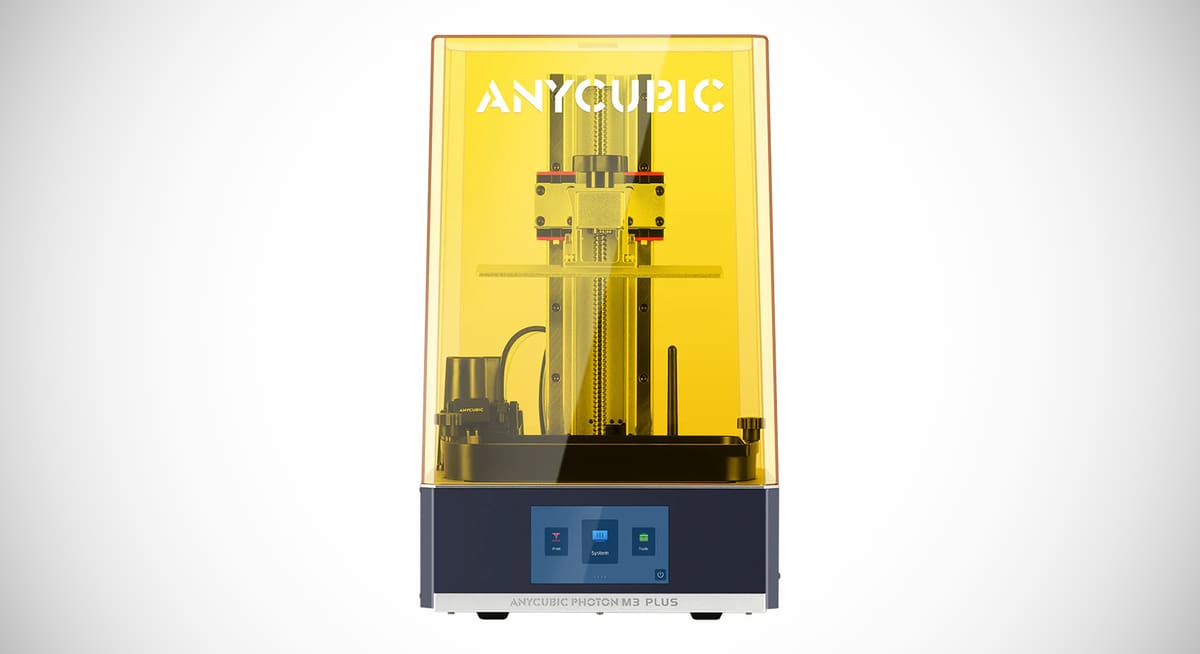
General Specifications
- Technology: MSLA
- Type: Resin
- Year: 2022
- Assembly: Fully assembled
- Manufacturer: Anycubic
3D Printer Properties
- Build Volume: 197 x 122 x 245 mm
- Layer Height: 10 microns
- XY Resolution: 34 microns (5,760 x 3,600 pixels)
- Z-axis Positioning Accuracy: 0.1 mm
- Printing Speed: 100 mm/h
- Bed Leveling: Manual
- Display: 5-inch touchscreen
- Third-party filament: Yes (excludes auto-fill)
Software Requirement
- Recommended Slicer: Anycubic Photon Workshop
- Operating System: Windows / macOS
- File Types: STL
- Connectivity: USB, Wi-Fi/LAN (Anycubic Cloud)
Dimensions and weight
- Frame dimensions: 475 x 360 x 290 mm
- Weight: ~12 kg

Similar Printers
Not quite what you’re looking for? If the Anycubic Photon M3 Plus isn’t up to the resin tasks you have planned, have a gander through our list of Best Resin 3D Printers in 2025: Our Picks in 9 Categories and you should find something that does.
Or, maybe you’re a bit pressed for time? Here are three machines we think have something in common with the Photon M3 Plus for you to consider:
Elegoo Saturn 2
If you’re looking for a printer with a similar spec and want to squeeze the highest level of detail you possibly can out of its screen, the Elegoo Saturn 2 is probably your best bet.
As we said previously, this printer is being offered for a slightly lower price than the Photon M3 Plus at $600, even with the slightly larger build volume. The only problem is that it’s not out just yet. But, if you don’t mind a short wait, the second batch of pre-orders was pegged to ship out in August – so it’s possible they’ll be available off the shelf very soon.
Nova3D Bene4 Mono
If remote printing is the feature that piqued your interest but you aren’t keen on Anycubic’s whole mobile app schtick, you should check out the underappreciated Nova3D Bene4 Mono.
This terribly named 3D printer comes with Wi-Fi connectivity as stock, but its 130 x 80 x 150 mm build volume is absolutely dwarfed by the likes of the Photon M3 Plus. Still, it has a perfectly fine 50 micron accuracy, is conveniently factory-leveled, and only costs ~$350.
Biqu Pixel L
A relatively new resin 3D printer with some interesting features is BigTreeTech’s Biqu Pixel L. It’s a 4K printer with a decent 196 x 122 x 210 mm of build volume to work with. What makes the printer unique, though, is its heated vat and micrometer leveling to help get a perfectly leveled print plate – two features rarely seen in consumer resin 3D printers.
Like the M3 Plus, the Pixel L also has automatic resin feeding, but uses a much simpler gravity system. Users need simply screw in a bottle of resin upside down and it will feed as it’s able. Sometimes simple is better.
Compared to the M3 Plus, the Biqu Pixel L is a little pricer at $899 but, if it’s unique features that you’re after, it’s got ’em.
Lead image source: Anycubic
License: The text of "Anycubic Photon M3 Plus: Specs, Price, Release & Reviews" by All3DP is licensed under a Creative Commons Attribution 4.0 International License.
CERTAIN CONTENT THAT APPEARS ON THIS SITE COMES FROM AMAZON. THIS CONTENT IS PROVIDED ‘AS IS’ AND IS SUBJECT TO CHANGE OR REMOVAL AT ANY TIME.





